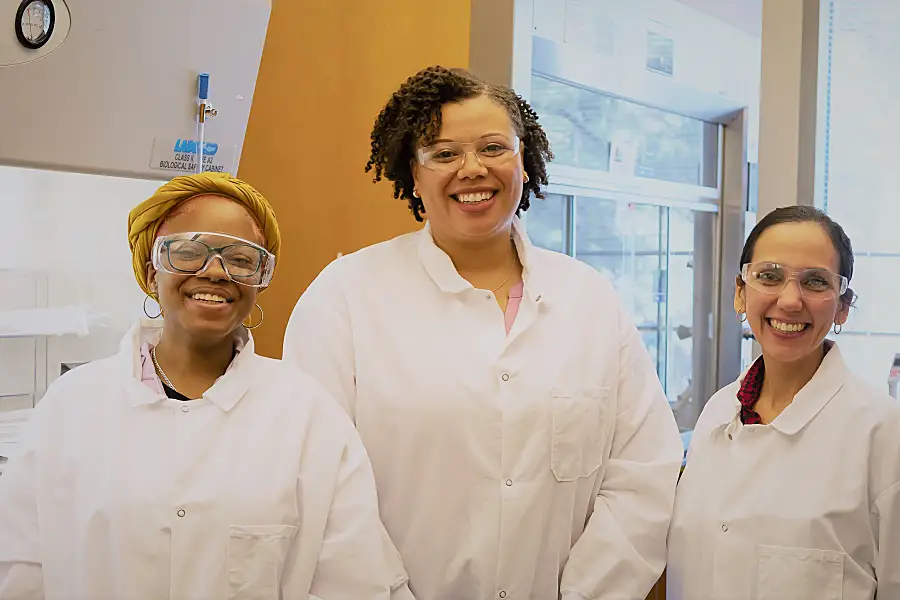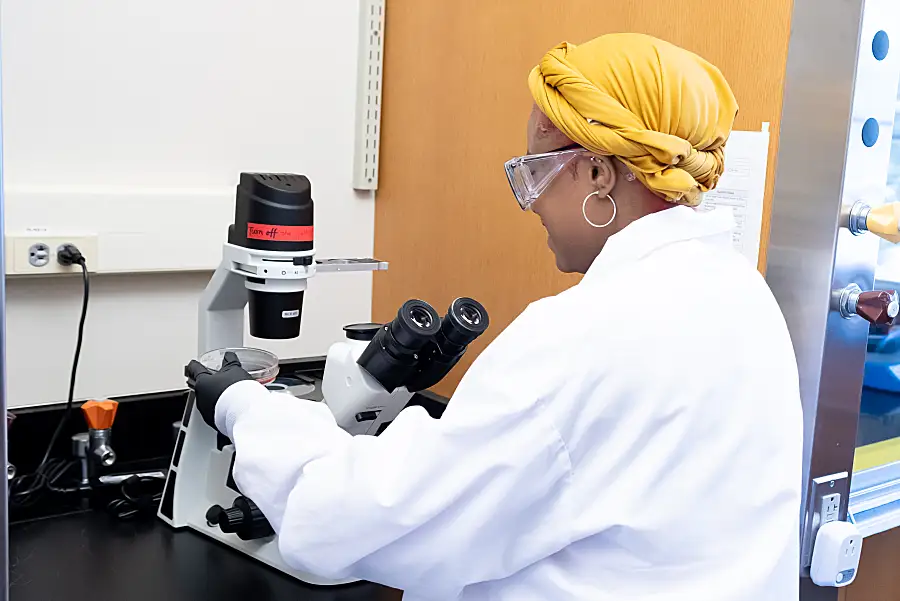The Power of Mentorship in Building a Stronger STEM Workforce
In recent years, emerging issues that affect human health and wellbeing have been brought to center stage. The COVID-19 pandemic, world hunger, climate change, global plastic pollution, and environmental contaminants like Per- and Polyfluorinated Substances (PFAS) are a threat to humans and the environments they live in. These issues often disproportionately affect minority communities that are also underrepresented in the scientific community, highlighting the growing need for a diverse and collaborative scientific workforce to address these complex and dynamic global problems.
RTI International is at the forefront of addressing emerging issues and STEM workforce development. RTI recognizes the need to hire and retain a diverse staff, who bring multiple perspectives and experiences. However, the current talent pool of STEM workers does not reflect the communities who are faced with the most challenges. For example, RTI headquarters is based in North Carolina where there is a Black population of 22.3%; however, the general Black STEM workforce is only 11%. There is also underrepresentation for women in North Carolina, where only 28% of STEM degrees were awarded to women.
Employers sometimes try to pin race- and gender-based hiring gaps on a lack of diverse applicants with relevant skills, but people interested in working in STEM have a different perspective. According to students and other prospective STEM workers, they steer away from the career field due to a lack of mentorship and experience. To address this, opportunities like internships with strong mentorship are critical. Mentorship can be defined as a relationship between two people where a mentor imparts their knowledge, experience, supervision, and support to a mentee. The definition for ‘good’ mentorship follows some general guidelines, and many people may contribute to the mentoring process, but ultimately the goals and the commitment to a mentoring relationship is defined by the mentee.
RTI International is working to increase the available pool of emerging scientists through partnering with North Carolina Central University (NCCU), an Historically Black College and University (HBCU) to mentor and train emerging scientists. The strategic partnership between RTI International and NCCU led to the creation of the NCCU-RTI Center for Applied Research in Environmental Sciences (CARES) program to support Environmental Justice concerns and research. One objective of the CARES program is to increase opportunities for students at NCCU to learn new laboratory techniques and engage in research at RTI.
Interview: Real Experiences of a Mentor and Mentee
Zahkura Eastman, a Biomedical Sciences undergraduate senior at NCCU, has been working at RTI since October 2022. She is being mentored by Dr. Imari Walker-Franklin, whose research focuses on understanding the impacts of microplastics to human health and the environment. Dr. Walker-Franklin joined RTI in January 2022 after finishing her PhD at Duke University and has previous experience mentoring students in research, including a role as an engineering mentor to Durham middle school kids. The following conversations between Imari and Zahkura highlight examples of what mentorship could look like and provide new ideas for building future mentorships.
What surprised you about working in a research environment?
Zahkura: This internship has changed how I view research in a very practical way. I can see just how much collaboration goes into a study and how this research can affect the present and the future. I understand that research starts as noticing a problem in some way, shape, or form and breaking it down to study it. The information that I have learned via scientific literature readings has allowed me to understand how to read graphs and results better and in a structured way. I also learned to pay attention to the structure of the literature papers and use that as an outline for the work, and future papers that I will contribute to.





